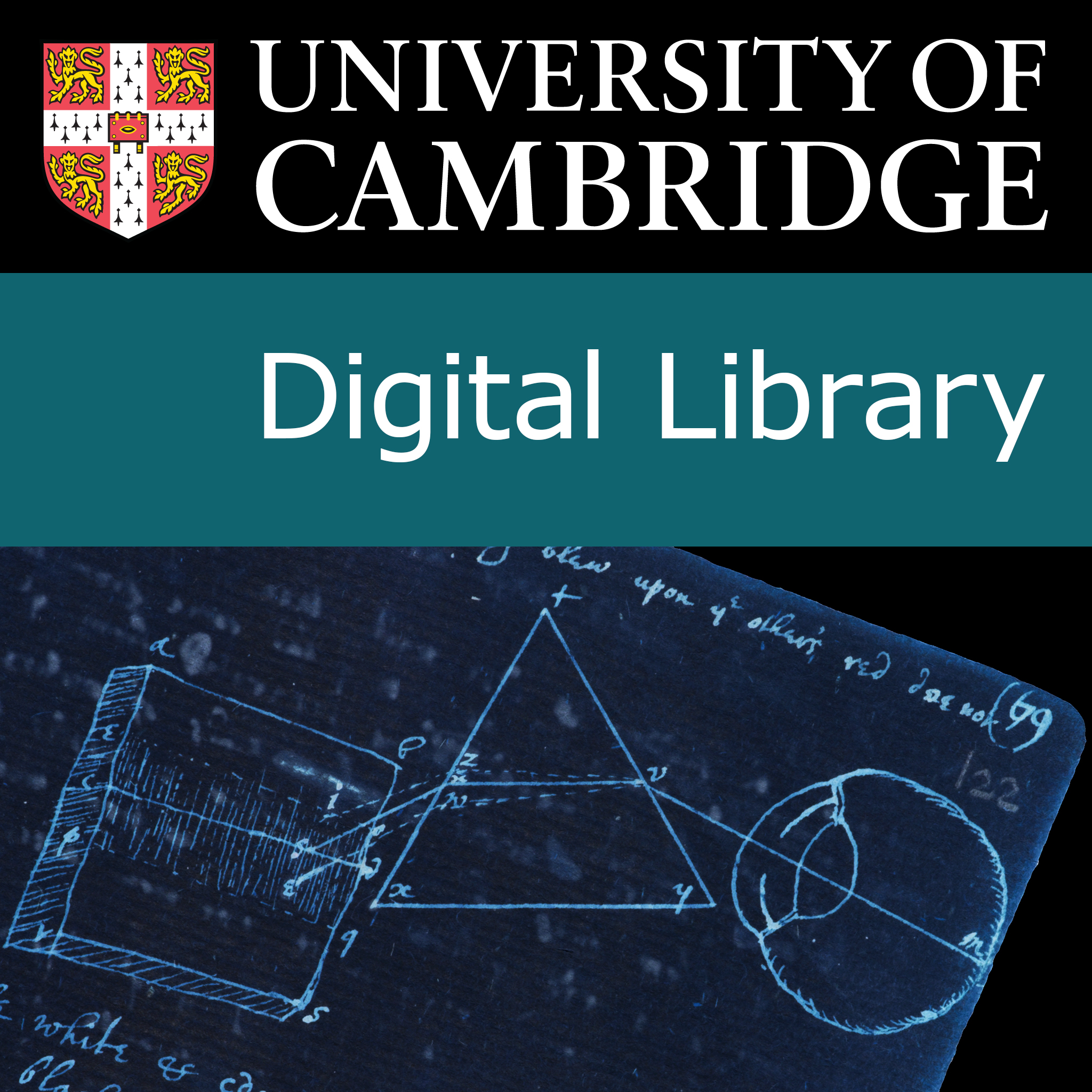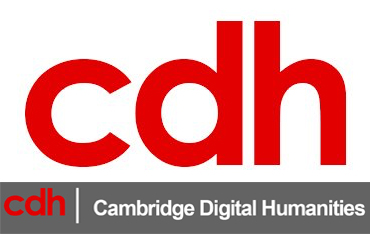| 27 Sep 2018 - 28 Sep 2018 | All day | SG1 and SG2, Alison Richard Building | |
- Description
- Programme
Description
Registration for this conference is now closed.
Convenors
Andrew Corrigan (University of Cambridge)
Huw Jones (University of Cambridge)
Summary
There is a close inter-relationship between teaching, scholarship, and research at Cambridge. This special environment naturally cultivates a rich variety of digital resources, technologies and tools that are increasingly the result of collaboration.
But does this collaboration extend to the teaching environment to benefit learners and teachers alike?
How can the enthusiasm and inspiration used to build these tools and resources benefit the pursuit of education and learning?
What emerging technologies might lead to a focused, efficient, interdisciplinary approach to make a difference to the broadest spectrum of researchers and students?
Ubiquitous in the digital age, images have become an essential tool in research and pedagogical environments. We’ve come a long way from the carousel of slides in a projector, and technological change continues to accelerate year on year.
But images are only one part of the picture. Hidden in the shadow of high quality images, there is invaluable work in the creation, management and use of data about objects, facilitating new means of discovery and opening the door to new methods of analysis.
Aims
In this context, we turn our attention to how digital tools and resources are used in education and learning, and how we can explore a real opportunity to strengthen the matrix of research, technology and education. By providing a forum for our existing network of colleagues and peers to engage with these issues, we hope to also attract new expertise and collaborations in fully realising the value of digital tools in the educational setting. By understanding the interdisciplinary nature of digital tools, we can stimulate further collaboration, strengthen the matrix of resources, research and pedagogy, and maximise our contribution to society whilst keeping the pursuit of education clearly in focus.
Background
Cambridge Digital Library, the University’s platform for digitised material and digital humanities research outputs, allows access to some of humanity’s most significant ideas. Only a select few have ever had access to the scientific papers of Isaac Newton, yet now Newton’s legacy is available to everyone with an internet connection. This is a profound step in itself, but the potential impact for those engaged in the pursuit of education and learning is even greater. Since the launch of Cambridge Digital Library over half a million people have looked at just one of the notebooks Newton himself used during his Cambridge education, and over 4.25million users from every corner of the globe have used the site.
Over the last year, Cambridge Digital Library has implemented the International Image Interoperability Framework (IIIF). Actively and enthusiastically developed by a global community, one of the primary goals of IIIF has been to give scholars an unprecedented level of uniform and rich access to image-based resources hosted around the world. Over 120 institutions have together created tools, resources and mechanisms that turn the traditional use of image resources on its head.
Sponsors



Supported by the Centre for Research in the Arts, Social Sciences and Humanities (CRASSH), the Cambridge Digital Library, and the Cambridge Digital Humanities learning programme.
Administrative assistance: events@crassh.cam.ac.uk.
Programme
| Day 1 - Thursday 27 September | |
| 8.45 - 9.15 | Registration |
| 9.15 - 9.30 | Welcome & Introduction Rachael Padman (Department of Physics, University of Cambridge) |
| 9.30 - 10.45 | Session 1: A review of current projects and initiatives in Cambridge Huw Jones and Andrew Corrigan (Cambridge Digital Library) 'The Dynamic Digital Library'
Melissa Rielly (Educational and Student Policy) 'Digital Advocates Network'
Helen Murphy (The Faculty of English Library) 'Cambridge Information Literacy Network & CamGuides'
Leila Muresan (Research Software Engineer Fellow) 'Cambridge Advanced Imaging Centre' |
| 10.45 - 11.15 | Break |
| 11.15 - 12.30 | Session 1 (continued): A review of current projects and initiatives in Cambridge Orietta Da Rold (Faculty of English) and Huw Jones (Cambridge Digital Library) 'Teaching TEI XML in the Classroom'
Anne Alexander (Director, Cambridge Digital Humanities Learning) 'Digital platforms as “live” learning environments: reflections from Cambridge Digital Humanities Learning Programme' Bogdan Roman (Centre for Mathematical Imaging in Healthcare) 'Cambridge Imaging Clinic'
David Marshall (Futurelib) 'The Cambridge student-researcher conflict' |
| 12.30 - 13.30 | Lunch |
| 13.30 - 15.30 | Session 2: What are some of our peers doing? Benjamin Albritton (Digital Medieval Projects Manager, Stanford University Library) 'Digital Manuscripts at Stanford: Building Resources for Research and Pedagogy' Rebecca N. Mitchell (Reader in Victorian Literature and Culture, University of Birmingham) 'The Central Online Victorian Educator (COVE)' Pip Willcox (Digital Humanities Academic Programme Manager, University of Oxford) 'Scaling Digital Scholarship Pedagogy: from the archive to the summer school'
Emma Stanford (Digital Curator, Bodleian Libraries, University of Oxford) 'Booksquashing at the Bodleian: Facilitating human encounters with digitized objects' |
| 15.30 - 16.00 | Break |
| 16.00 - 17.00 | Session 3: Academic and Commercial Collaboration Tom Crane (Technical Director, Digirati) 'Building open IIIF tools'
Francis Neary and Alison Pearn (Darwin Correspondence Project) |
| Day 2 - Friday 28 September | |
| 9.00 - 9.10 | Registration |
| 9.10 - 9.15 | Welcome and introduction to the day |
| 9.15 - 10.45 | Session 4: Interdisciplinary Perspectives Ira Rabin (The Centre for the Studies of Manuscript Cultures (CSMC), Hamburg and the Federal Institute of Material Research and Testing (BAM), Berlin) 'Encouraging collaboration between scholars and scientists'
Mary Chester-Kadwell (Cambridge University Library) and Chris Sparks (Queen Mary University of London) 'Hacking the Humanities: Learning by Making'
Wout Dillen (Centre for Manuscript Genetics, University of Antwerp) 'A Finger in Every Pi: Experiences Designing and Teaching a Hands-On IIIF course for the Antwerp Summer School on Digital Humanities' |
| 10.45 - 11.15 | Break |
| 11.15 - 12.45 | Session 5: Models for Success Rashmi Singhal (Director of Academic and Research Computing in the Humanities, Harvard University) 'The Whole is Greater than the Sum of its Parts'
Pamela Black (Education Lead, Wellcome Genome Campus) 'Achieving Global Reach: Genomics, Researchers, Technologies and Social Learning Online' |
| 12.45 - 13.45 | Lunch |
| 13.45 - 15.15 | Session 6: Challenges to Digital Pedagogy David Marshall (Futurelib) 'Digital space: curation, collaboration and ownership'
Merisa Martinez (Swedish School of Library and Information Science, University of Borås) ‘”When in doubt, go to the library”: The perks and pitfalls of trans disciplinary digital scholarship'
Discussant: Dan Pett (Head of Digital and IT at The Fitzwilliam Museum) |
| 15.15 - 16.00 | Round Table and Close Chairs: Huw Jones (Cambridge Digital Library) and Mark Andrews (Digital Learning Programme Manager, Cambridge Judge Business School) |



